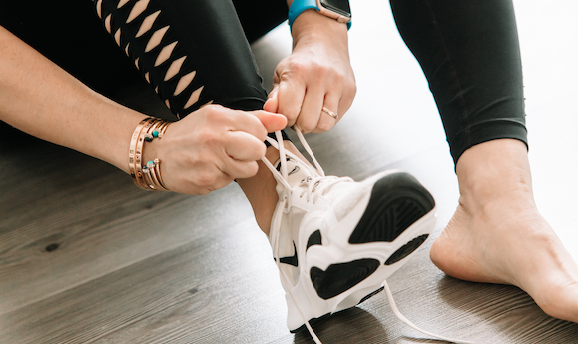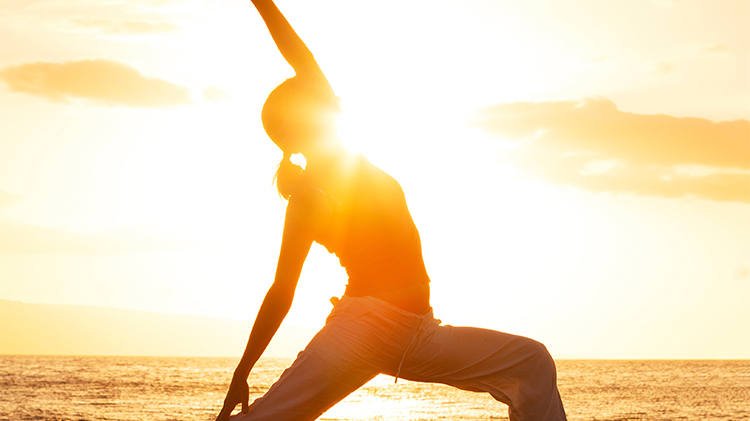
AM or PM Exercise – which is better?
Ever wondered if being an early bird or a night owl has better benefits than the other when it comes to your workout regime?
Let’s start with a cliché: the best workout is the one you actually do, and for some, getting out to exercise is the hardest part. And when you have the more dull practicalities like: When can you actually get to workout? When will you enjoy it? At what time does exercise most make you find your ‘feel good’? Choosing the right time to exercise can seem even more brain taxing than originally thought!
So, should we all rise with the dawn, or is it better to refresh your brain and body for the evening ahead with a 45-minute session after a long day at work?
Once you consider that sports records are almost exclusively broken after the sun’s gone down, the truth becomes harder to find, as both early birds and night owls clock in impressive advantages.
MORNING WORKOUTS BENEFITS

Morning workouts have an edge over the evening, offering a list of benefits that might even sway some night owls to get their exercise in the morning.
Nurtures routine consistency
People who exercise in the morning can be more consistent because morning workouts leave less room for copping out (unless your bed is like Ikea and you just can’t ever find your way out!) But once you’re up, you’re up, and there are literally no excuses stopping you from getting that heart rate up with some much deserved self-care time.
Improves sleep cycle
Waking up early might be difficult at first, but a morning exercise habit can shift your circadian rhythm so that your body is more alert in the morning and more tired in the evening, making it easier for you to fall asleep earlier and wake up earlier the next day. Those who are asleep early also produce more HGH (Human Growth Hormone).
And don’t forget, if you’ve worked out hard in the AM, your body will naturally be tired from the day’s afterburn too. Win-win!
Burns more fat
Exercising on an empty stomach: the “fasted state”, burns more fat than exercising after a meal: the “fed state” because your body utilises fat stores that already exist to fuel exercise, rather than use the food you just ate as fuel. Also, the afterburn of the workout lasts longer which might help you lose more weight over time. It’s been proven that cardio smashed out at sunrise also burns 20% more fat, and you will eat at least 100 calories less in the day too!
Increases productivity
Physically and mentally, your body will be ready and raring to go after a morning session. Exercise boosts energy levels, alertness, focus and the parts of your brain that manage logical thinking – so safe, solid decision-making becomes a whole lot easier.
Full day mood booster
Morning workouts are a great way to start each day off right. The endorphins that your body produces when you exercise help to keep your mood elevated long past the workout, and the sense of accomplishment you feel when you are done also makes for an optimistic start to the day.
MORNING WORKOUT DRAWBACKS
Though morning exercise can help lead to a healthier lifestyle, there are drawbacks to an AM routine, too. If you wake up in the morning and you’re hungry, you might be too tired to get moving or fatigue faster when you are exercising. Working out on an empty tank might lead to stomach cramps and dizziness – which can be somewhat off putting if you’re trying to start up this new habit. Try eating a small, high carb snack before your morning workout, like half a banana to help avoid pain and potential fatigue. It’s also worthwhile to limber up for longer in the morning as it is normal to be temporarily inflexible when you wake up.
EVENING WORKOUT BENEFITS

Practitioners of evening workouts often praise that they have more power to perform in the PM, as the day provides more fuel to get them there. So, whilst early risers might not be swayed to workout in the evening, preferring to catch some much needed early zzz’s, the benefits of evening sessions are almost just as good as that of a morning workout.
Sustained physical performance
In the afternoon, some people have more and sustained energy to push limits and endure for longer. Whatever that workout is, from yoga to weightlifting, our food intake and circadian rhythm naturally help increase muscle power hormones, endurance and mobility to go that extra mile.
Additionally, oxygen uptake kinetics are faster in the evening, which means you use your resources more slowly and effectively than in the morning.
Pre-warmed up muscles
Since you’re already up and moving both physically and mentally, your anaerobic capacity is approximately 7% higher in the day, making your core temperature warmer and optimising your muscle function and strength.
Your reaction time is at its quickest, which is important for exercises like high-intensity interval training (HIIT) and is also the time when your heart rate and blood pressure are lowest, which decreases your chance of injury while improving performance.
And don’t forget your mental muscle which helps you to focus faster, and get you into the groove quicker
Protects your heart
Resistance training in the evening in particular is even more beneficial for the heart than any other activity. In fact, Jill Kanaley, professor at the University of Missouri Department of Nutrition and Exercise Physiology, published a study that concluded the following: “Resistance exercise has its most powerful effect on reducing glucose and fat levels in one’s blood when performed after dinner.”
Relieves the day’s stresses
Exercise is always a good way to relieve stress. The surge of endorphins you get during and after exercise can slow down that spinning mental muscle into a leisurely walk in the park. But be sure to not work out too close to bedtime, as those soaring hormones can potentially keep you staring at the ceiling from your bed at night.
Replaces bad evening habits
If you have some evening habits you want to replace, such as snacking, drinking alcohol, smoking, mindlessly scrolling through social media or just watching too much TV, exercise can take their place. Once you begin exercising at night, you might not even miss your old habits.
EVENING WORKOUT DRAWBACKS
Evening workouts can potentially mess with your sleep – the surge of those mood and body boosting hormones don’t just switch off the moment you stop your workout, and that afterburn might just keep you awake at night struggling to sleep. Try to avoid intense workouts too close to bedtime and opt for yoga and stretching to improve your sleep.
Also, eat right. Your body will want more food after a workout as it tries to repair your muscles, so there will be a tendency to eat a tonne of food after your workout, and right before bed. Tuck into a protein meal with a small number of carbohydrates to replenish glycogen reserves.
When adopting any new workout, consistency is key. Exercising at night spells trouble for many because you are too tired after a long day. Try to prioritise your workout before anything else.
At Bodytree Studio, we believe that the best time to work out is whenever you can. If you can’t wake up early enough to squeeze in your workout before work, don’t beat yourself up—just try to get some exercise during the day. We run classes from as early as 6:00am up until 8:00pm. Check our schedule to find out more.
Citations from
Men’s Health
Health Line
Elite Daily
Loyola Marymount University
University of Missouri Department of Nutrition and Exercise Physiology




No Comments